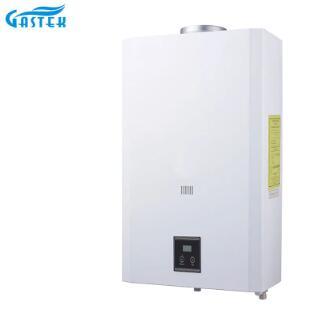Understanding the Role of the Gas Control Valve in an Electronic Control Constant Temperature Gas Water Heater
2024-07-25
Introduction
The electronic control constant temperature gas water heater is a marvel of modern engineering, providing precise and reliable hot water on demand. Central to its operation is the gas control valve, a crucial component that ensures the safe and efficient delivery of gas to the heater. In this blog, we will explore the role of the gas control valve in these sophisticated appliances and how it contributes to their functionality.
What is a Gas Control Valve?
A gas control valve is a mechanical device that regulates the flow of gas to the burner in a gas water heater. It plays a critical role in controlling the gas supply based on the requirements of the water heater, ensuring that the correct amount of gas is delivered to maintain the desired water temperature.
Key Functions of the Gas Control Valve
1. Regulating Gas Flow:
The primary function of the gas control valve is to regulate the flow of gas to the burner. It ensures that the right amount of gas is supplied based on the demand for hot water. This regulation is crucial for maintaining a consistent water temperature and efficient operation of the heater.
2. Safety Mechanism:
Safety is a paramount concern in any gas appliance. The gas control valve incorporates several safety features to prevent dangerous situations. For instance, it can shut off the gas supply if it detects abnormal conditions such as a pilot light failure or an over-temperature situation. This helps to prevent gas leaks and potential explosions.
3. Temperature Control:
In an electronic control constant temperature gas water heater, the gas control valve works in conjunction with the electronic control system to maintain the desired water temperature. It adjusts the gas flow based on the temperature feedback from sensors, ensuring a constant and comfortable water temperature for the user.
4. Modulating the Burner:
Advanced gas control valves can modulate the burner's output by adjusting the gas flow. This modulation allows for more precise temperature control and can improve the efficiency of the water heater by reducing the amount of gas consumed.
5. Interfacing with the Electronic Control System:
The gas control valve is an integral part of the electronic control system in a constant temperature gas water heater. It receives signals from the electronic controller to adjust the gas flow based on real-time temperature readings and user settings. This integration allows for sophisticated control algorithms to optimize performance and energy efficiency.
How the Gas Control Valve Enhances Performance
- Consistent Temperature: By precisely regulating the gas flow, the gas control valve helps maintain a consistent water temperature, providing a comfortable and reliable hot water supply.
- Energy Efficiency: Efficient gas regulation means less wasted energy. The ability to modulate the burner and adjust gas flow based on demand can significantly improve the overall energy efficiency of the water heater.
- Safety: The built-in safety features of the gas control valve protect against potential hazards, ensuring the safe operation of the water heater.
- User Comfort: The electronic control system, in conjunction with the gas control valve, allows users to set and maintain their preferred water temperature effortlessly, enhancing overall comfort.
Conclusion
The gas control valve is a vital component in an electronic control constant temperature gas water heater. Its roles in regulating gas flow, ensuring safety, maintaining temperature, and interfacing with the electronic control system are crucial for the efficient and safe operation of the heater. By understanding the importance of the gas control valve, users can better appreciate the technology behind their reliable and efficient hot water supply. In the next blog, we will delve deeper into the technical aspects and innovations in gas control valves that are driving advancements in modern water heaters.



